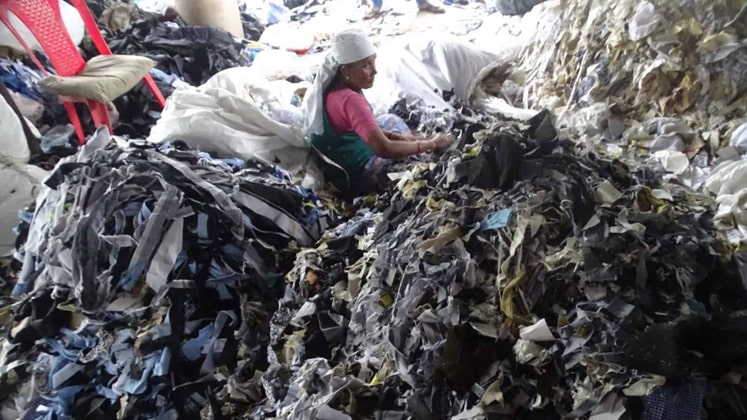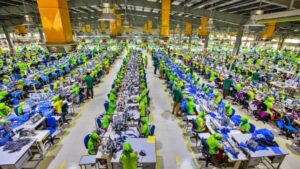
The Bangladesh Textile Mills Association (BTMA) has recently appealed the National Board of Revenue (NBR) to eliminate the value-added tax (VAT) on the acquisition of textile waste for the recycling sector, along with VAT on the sale of recycled fibres.
The goal of these measures is to promote the growth of the recycling industry within the country.
In a letter dated 6th August and addressed to the Chairman of the NBR, Abu Hena Md Rahmatul Muneem, BTMA President Mohammad Ali Khokon also urged the introduction of a new harmonised system code for recycled cotton fibres.
This code would help prevent complexities related to VAT and supplementary duty on recycled fibre products.
Presently, recycling businesses are required to pay a 7.5 per cent VAT when purchasing textile waste, commonly known as ‘jhut,’ from vendors. Furthermore, a 15 per cent VAT applies to the sale of recycled fibers to spinning and yarn mills.
BTMA further recommended a prohibition on the export of garment and textile waste, citing the increasing number of recycling industries in the country.
According to BTMA, the clothing industry in Bangladesh generates approximately four lakh (400,000) tonnes of waste annually, of which only 5 per cent is recycled domestically even if achieving 100 per cent recycling of this waste could lead to a 30 per cent reduction in the import of fresh cotton, resulting in potential savings of around US $ 1 billion per year, the trade body asserted.
The President of BTMA emphasised that to incentivize the expansion of the recycling sector, VAT applied to recycled fibres should be waived. Otherwise, spinning mills might not have the motivation to utilise recycled fibres, given the option to import virgin cotton duty-free.






